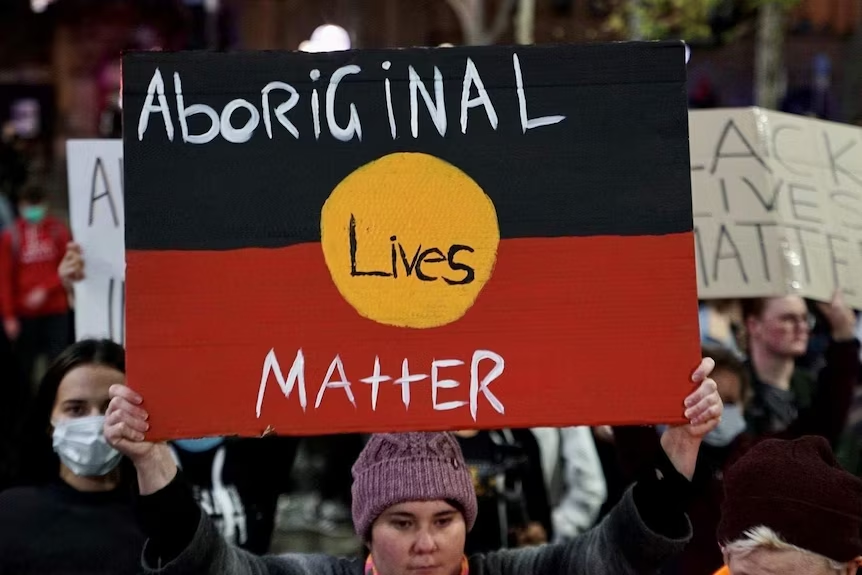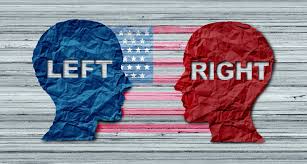
In America, and all over the Western world, members of the dominant society often dismiss the reality of racism as if it’s a thing of the past. This isn’t just ignorance — it’s willful denial, cultural arrogance, and a deep resistance to accountability. In the same way that overt racism was normalized in the old world, a more evolved form of racism in the modern world is denying its existence and gaslighting those who speak on it. There are many ways in which the spirit of evil permeates in the hearts and minds of people throughout society, and the psychotic denial of racial realities is one of the them.
🧠Denial as a Defense Mechanism
When racism is brought up, whether it’s police violence, disparities in resources, or the erasure of Black achievement, some members of dominant society respond in these familiar knee-jerk ways:
- “That was in the past.”
- “Stop playing the race card.”
- “I don’t see color.”
- “Everything isn’t about race.”
These are not neutral statements. They’re strategic tools of avoidance, dismissing the conversation before it can even begin. This type of denial protects oppressive systems by silencing the people most affected by them.
Not everyone possesses these toxic mentalities, but unfortunately, many members of the dominant society exhibit these behaviors and have for decades. These attitudes exist and veil themselves in the illusion of civility. But there is nothing civilized about it.
The worst types of racism aren’t the in-your-face and overt spectacles. At least those retrobates own their racist ideologies without sugar coating anything. The worst racist attitudes and behaviors are from those who enable systems of oppression while pretending to be good people. These nefarious tactics include demonizing people calling attention to racism, while pretending to have the moral high ground.
We all indeed have struggles, and none of us should dwell on the negative or live with a victim mentality. It’s not productive or healthy. However, pretending certain realities don’t exist is foolish and leaves these issues without contention. We are supposed to challenge injustices. Ignoring or denying problems while shooting down others who speak out is repugnant and beyond reprehensible.
🌍 A Global Pattern

- In Australia, many white Australians deny the effects of colonization on Aboriginal people, while systemic inequalities in health, housing, and incarceration persist.
- In Europe, anti-Blackness is masked under nationalism and assimilation, where immigrants are told to “integrate” while being excluded from power.
- In America, the legacy of slavery, redlining, and stolen labor is downplayed — often by those who directly benefit from it.
This isn’t about individual prejudice. It’s about systemic power and the refusal of dominant groups to confront the truth of how that power was acquired and maintained.
📢 When the Oppressed Speak, the Privileged Deflect
Any time people of African, Indigenous, or colonized descent speak on injustice, the reaction from many in dominant society is often not curiosity, but discomfort, dismissal, or defensiveness. Instead of listening, they:
- Change the subject
- Demand “proof”
- Insist racism has nothing to do with it
- Claim to be the “real” victims
This behavior is rooted in the belief that they own the narrative, and that those raising awareness are simply “being divisive” or “pulling the race card.” The truth, however, is that this is being morally bankrupt and dishonest. It’s being completely bereft of empathy and refusing to look beyond one’s own perspective. Denying racism is racism.
Educators like Jane Elliot have proven time and time again that, despite deflection, most white Americans understand institutionalized racism very well. Members of the dominant society know black and brown people are more likely to be profiled and targeted by police, denied loans and opportunities. Most Americans know that there is an undeniable history of systemic oppression that makes things a little harder for some of us in society. To say nothing and do nothing about it is the most chosen path because acknowledging it makes people uncomfortable. People are not sure what they are supposed to do about it anyway. So inaction is understandable. But completely denying it, or downplaying it, is depravity.
The Political Angle

People’s political affiliations definitely affect their worldview regarding race issues. However, there are problems with those world views and approaches to race issues on both sides of the fence.
People who lean toward the liberal side of the fence seem more respectful and aware of systemic racism issues. However, it’s fair to say that some liberal voices and platforms sensationalize, overdramatize, or oversimplify race issues, and this can be counterproductive to real progress. Some engage in “performative allyship”, using race as a branding tool. This entails publicly supporting causes (like BLM) for social credit while doing little behind the scenes to address systemic problems. This creates superficial support that feels more like virtue-signaling than true allyship. While liberal movements have often led the charge against racism, some parts of that culture can exaggerate, oversimplify, or commodify race in ways that are not helpful. For example, painting “Black Lives Matter” on streets, and chants to defund the police, only instigated things and weren’t what was needed.
The conservative side is, of course, completely different, but also problematic. Many mainstream conservative attitudes deny or minimize racial realities by promoting colorblindness, rejecting the existence of systemic racism, and focusing solely on individual responsibility. This perspective feels that racism ended with slavery or in the 1960s, while completely ignoring the lasting impact of institutional inequalities like redlining, wealth gaps, and mass incarceration. Conservative rhetoric frequently reframes discussions of race like Critical Race Theory or DEI as dangerous or divisive, labeling them “woke” or anti-white. By reducing racism to isolated acts of meanness rather than systemic power imbalances, and using tactics like “what about Black-on-Black crime” or claiming reverse racism, these narratives deflect from real accountability or progress. While not all conservatives share these views, this dominant posture protects the status quo and silences honest conversations about racial injustice in education, law, housing, and beyond.
🔍 Why This Matters
Denying racism doesn’t make it disappear — it enables it. The refusal to acknowledge injustice allows it to keep growing beneath the surface, more sophisticated, and harder to detect.
Acknowledging racism doesn’t mean taking personal blame. No one should feel that way. It means confronting the systems and patterns that hurt millions of people, and having the courage to do something about it.
Many people simply do not understand why it’s important to fight racism and institutionalized systems of oppression. It’s a dark energy that doesn’t stay in one place; it bleeds into so many other aspects of human life. It’s a cancer and a corruption that reflects back to us what type of society we have. And when we sit idle aware of its existence, we are complicit with evil. Everyone doesn’t have to be an activist, but coming down on people who try to expose and confront these types of issues should be seen for the wickedness it is.
✊🏾 A Call for Courage and Truth
It’s easy for members of the dominant society to insist they aren’t racist. A better question is: what are we doing about racism?
Racism is revolting, and we see it rear its head time and time again. For example, the racist lady, Shiloh Hendrix, who called an autistic child the n-word, was able to raise nearly a million dollars after getting the negative attention she deserved. To put it in perspective, a grown adult called a 5-year-old baby on the spectrum a racial slur, and doubled down on it in front of other children. Then people rushed in to support her monetarily. It’s almost impossible to justify, but this is the world we live in. Racism is psychotic and demonic. And organized systems rooted in it should be resisted by humans of any race.
To all those trying to make the world a better place: keep speaking, creating, educating, and pushing back. Your voice is necessary, and your experience is real, no matter who tries to dismiss it. Some people will never be reached or saved. They’re lost causes who will never evolve or change their worldview. Some will remain in lower vibration, and that is their choice. However, there are millions of awakening people that do want to learn, grow, and be the best versions of themselves.
To build a just and honest society, we must confront racism and racist systems, not with denial or theatrics, but with the courage to face uncomfortable truths and the commitment to dismantle the systems that keep them in place.

Leave a Reply